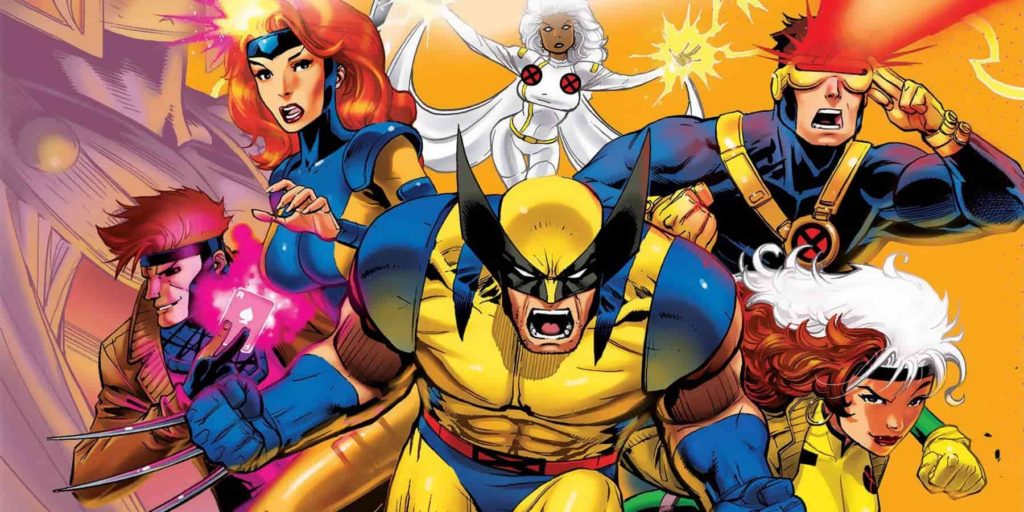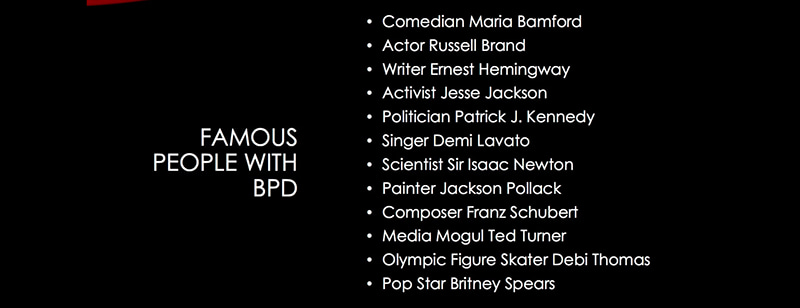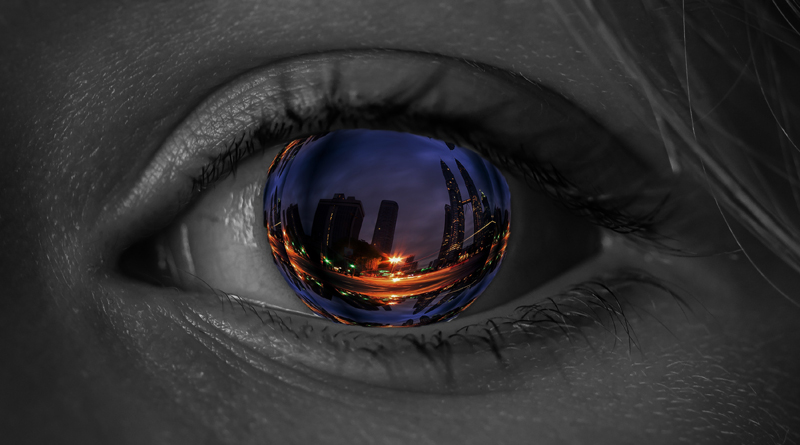
The Evolutionary Advantages of Mental Illness
By Frank King
Desirable Disadvantages
So what if those of us diagnosed with mental illness are not in fact, or do not in fact, have a genetic mutation, but in fact an amazing evolutionary adaptation? What if mental illness, as Malcolm Gladwell says in his book, David and Goliath, is in fact a “desirable disadvantage”?
And if that is the case, why don’t we treat the mental illness, the symptoms and so forth, with therapy, medication, and then work to embrace, enhance, utilize, and celebrate the mental ableness? What would the impact be on a child, if you could convince them that what they have is not simply a mental illness. It is in fact an amazing combination of mental illness and mental ableness, and that they’re not broken. They were actually designed that way. I believe the positive impact would be incalculable.
I myself do not believe I am broken. I have two mental illnesses. One is called Major Depressive Disorder, better known as depression, and something called Chronic Suicidality, which is little known, which means for me, and people in my tribe, the option of suicide is always on the menu for problems large and small.
A couple of years ago my car broke down. I had three thoughts unbidden. One, I get it fixed. Two, I could buy a new one. Three, I could just kill myself. It just bubbles up as an option all the time. I do believe, however, that that mental illness is the flip side of my mental ableness, my vivid imagination, creativity, my sense of humor which has allowed me to make a living as a stand-up comedian and professional speaker for the last 33 years.
Surviving with a sense of humor
I got to tell you, I know a lot of comedians. I must tell you, a disproportionate number of comedians that I know have a mental illness. There’s a guy, unfortunately recently deceased, named Mike MacDonald, a comic out of Canada. He said there are two kinds of comics: diagnosed, undiagnosed. Yeah, that’s the nature of the best, and I’ve got to tell you, my best comedy students are the mentally ill. I taught a class designed for mentally ill people by a guy named David Granirer in Vancouver, British Columbia.
The class is called “Stand Up For Mental Health”. It’s for people who have a mental illness. They want to write and perform stand-up comedy based on their battles with mental illness. The idea is to reduce the stigma. You have to have a diagnosis to be as student, and you have to have a diagnosis to be a teacher. So it’s part comedy class, part peer counseling session. It’s amazing.
They were the funniest people. Stuff came out of their mouths unedited that was ready for prime time. I’ll give you a couple of examples. I was having coffee with a potential student named “Debbie-Lynn”. Debbie-Lynn was from Kentucky. I said, Debbie-Lynn, tell me about yourself. She goes “well, I’m from Kentucky. No kidding? And I’ve had six husbands. I only shot one of them, but that’s another story.” Whoa! I wrote that down.
Then there was Lisa. Oh, and by the way, last name’s withheld: comedy coach client confidentiality. Lisa came to me. She was dual diagnosed: alcoholism and depression. She’d just come from an AA meeting where the speaker had apparently mentioned Christopher Columbus. So she comes in, I go “what do you got, Lisa?” She goes “well, I think Christopher Columbus was an alcoholic.” Why do you think that? “Well, his big idea, if you recall, was to sail east to get west. Doesn’t that sound like something you’d come up with in a bar? And then he did it. And when he landed, like an alcoholic, he had no idea where he was. When he got back, like an alcoholic, he couldn’t tell anybody where he’d been. And he got a woman to finance it twice.” That gives me chills that’s so good.
I had a student named Camille. Her mental health backstory was nightmarish. But again, because we’re all diagnosed, you could share it. She said: “I went to see my psychiatrist. He asked if I was depressed. I said yes. Having thoughts of suicide? Yes. Do you have a plan? She said, I have five plans. Five plans? She goes, yeah, do you want to hear them all, or just the ones that involve you?” It’s dark, but it’s funny, and there’s not a syllable in there that doesn’t move the narrative forward.
My favorite was Trisha. Trisha came in, she goes “yeah, I got a joke. Last night my boyfriend said to me, I want to break up. She said, I said to him, why do you want to break up? He said, I want to see other people. I said, I’m bi-polar, give me a minute.” Again, that’s the way that it came out of her mouth. No editing necessary. Go right into an act. Go right on television.
Mental ableness
Sometimes I feel sorry for my “neurotypical” friends. Yes, I have a mental illness, but I also have this sort of batch of mental ableness, akin to superpowers, I believe. I mentioned the superpower thing to my sister, my darling little sister Jane, who battles anxiety and depression. She goes “superpowers, yeah. We’re not the X-Men, we’re the Xanax Men.” Yeah.

The Xanax Men. I decided that, and when I speak to kids in middle and high school, I suggest to them they create a superhero avatar, DC Comics, or Marvel, somebody, some character they really like, and then customize it to their situation. If you think about it, most superheroes have issues, have something tragic happen in their lives. Superman was put into a capsule, fired into space, and his home planet blew up. I’m guessing he has a little separation anxiety. Batman saw his folks gunned down the street when he was child. A little PTSD. Spiderman? Bitten by a radioactive spider. Okay, I’m not saying they’re all equally tragic, but they all have issues.
I figured out who my superhero avatar would be. I said to my wife, “guess who it is. I said, by day, I’m mild-mannered and easy-going, laid back until I get mad.” She goes “you’re the incredible hulk.” I go “yeah, but see I have to customize it a bit. So it’s mild-mannered and laid back until I get depressed and really blue, and then I’m the Incredible Sulk.”
Utilizing your hypomania
Let’s talk about bipolar. It, I think, should be called tripolar, by the way. You have your manic, which is sleepless for nights on end – psychotic behavior, hallucinations, delusions, paranoid. You have your depressive, which is loss of energy, helplessness, thoughts of suicide. But in the middle, are you aware? There’s a phase called hypomania, hypomanic, hypomania, an amazingly productive phase. Energetic, enthusiastic, euphoric, creative charismatic, natural leader, lofty goals, takes inspired risks that, when they work out, seem brilliant.
Nowadays what they do clinically is they medicate people to normal, or just a little into the depressive. Why not hold them in a safe altitude in that band of hypomania? I give you the poster boy for this: Johnny Manziel. He was just diagnosed with bipolar recently, but in his young life he became the only freshman ever to win the Heisman trophy, quarterback of the year, AP All-American and then, of course, he went to play in the NFL for the Cleveland Browns for two years.

I believe his success came from using the tools he had from his hypomanic phases. However, he was untreated, undiagnosed, and the only thing he did for treatment was alcohol. This led to losing his football career, run-ins with the law, and his life falling apart. The good news is Johnny Manziel has been diagnosed. He is now in therapy taking medication, in talks with the New England Patriots to resume his football career.
He’s not alone in terms of famous people with Bipolar Disorder – there are many rich, famous, and/or notable people with the condition. So here’s my question: If my mental ability, is just the flip side of that, my mental disability, what is the connection?

Neurodiversity and evolution
I believe the connection is why, and I believe the why is found in evolution. A hundred thousand years ago the majority of cave men and women, anthropologists will tell you, had Bipolar Disorder out of necessity. Their lives were governed by the movements of the sun and the seasons, so as spring approached, and summer began to happen, they would come out and they’d have to gather and hunt in three and a half, four months, what they’re going to need for eight months. So, they would slip into the hypomanic phase. They were super hunters, super gatherers, and hypersexual because, to keep the numbers up in the tribe, they had to have a lot of kids.
All summer long they would hunt and gather, and then as the days grew shorter and the nights grew colder, they would begin to slip into the depressive phase, not so much interested in sex, and they’d find a place to hunker down and hibernate and keep the children alive until the summertime.
So the question is: are there any other “mental illnesses” that date to that time period that were survival skills? OCD. You have to take the four months worth of hunting and gathering, and store it in such a way that it will sustain you for eight months. Who better to be your quarter-master or supply sergeant than somebody who is obsessed with organization and cleaning rituals? Parasites, bugs, germs, no Purel hand sanitizer. Somebody in the tribe had to go, no! No, do not eat that. That’s the person with OCD. It was a survival skill back then.
Kids with ADD, ADHD. Nowadays, we make fun of kids because you put them in a desk, chain them down, force them to look at a board for six and a half hours, and wonder why they disrupt the class. It’s because they’re wired like the kids a hundred thousand years ago. Back then, though, somebody with ADD, nowadays we make fun of the kids, easily distracted. Squirrel! But back then when everything and everybody could kill and/or eat you, it was not funny. It was a velociraptor! That’s a survival skill.
Finally: dyslexics. This is my favorite. Do you guys know dyslexics have better peripheral vision than non dyslexics? Yup. Non-dyslexics, when they’re looking, are seeing whatever’s in the frame directly ahead of them. They can see the rest, but they’re not focused on anything but this. Dyslexics tend to focus on the whole, the panoramic, and they have the uncanny ability to spot the anomaly, what’s wrong with the picture. So never play Where’s Waldo with a dyslexic for money!
Celebrating ableness in the present day
All right, so why should we care? What difference does that make nowadays? Here’s what I think we should do with that information. We should change the IEP, the individual education plan, for students with mental illness to treat and minimize the mental illness, and embrace, enhance, energize, and celebrate the mental ableness. You’ve got a kid with OCD. We should have a curriculum that requires attention to detail and precision. STEM, science, technology, education, mathematics, perfect. Arts and humanities, forget it.
Flip the equation. The kid with dyslexia. Forget STEM. Arts and humanities, fewer letters, fewer numbers, and multidimensional complex tasks. Why not play to their strengths? And the kid with ADD? I’ve got a friend named AJ, who is a professional trumpet player who taught a public school band for a couple of years. He said, Frank, some of the kids with ADD, they were the best students I had, and bar none. The trouble was, I could tie them into a chair for 50 minutes, and they could practice scales, but after 10 minutes, that next 40 minutes, they didn’t get any better.
So what he did was he bought an egg timer. He said to the kid, look, 10 minutes to go practice your scales until the egg timer goes off. When it went “ding” he goes, okay, you’ve been sitting for 10 minutes, now you’re going to practice that piece you’re performing on Saturday until the timer goes off. “Ding.” Okay, now we’re gong to practice our breathing for 10 minutes. He said the transformation was amazing because they are extremely capable, just in short bursts.
So the bottom line is we’re just now beginning to scratch the surface to figure out why it is our brains “go wrong”. Early research shows that it is probably because what we call mental illness today is actually, in fact, an amazing combination of mental illness and mental ableness. And, by the way, I put those lists of famous people up there? You do not have to be mentally ill to be rich, famous, and/or notable… but apparently it doesn’t hurt!
This article is based on a TEDx Talk given by Frank King, which can be seen here. Thanks to Frank for letting us republish it!

Frank King, aka The Mental Health Comedian, is a Suicide Prevention and Postvention Public Speaker and Trainer who turned a lifelong battle with depression into a keynote worth spreading.After writing for the Tonight Show for 20-plus years and performing corporate comedy, Frank’s attention…His mission is to end the stigma surrounding mental health by share his insights with anyone and everyone who will listen in an effort to “start the conversation.”
Frank has thought about killing himself more times than he can count. Like many of us, depression and suicide run in his family. He addresses his own trials and tribulations using a tool people from all walks of life can relate to, humor. With his TED Talk “A Matter of Life or Death” he openly addresses topics considered taboo in today’s society.
As a Motivational Public Speaker and Trainer who travels the world, Frank uses comedy and personal life lessons to help break the ice and start an engaging conversation amongst those struggling with mental and emotional stability. This act of faith helps those struggling to find a voice to express themselves. Additionally, it helps create a pool of common knowledge where those who suffer, and those who care about them, can swim. He believes that where there is humor there is hope. And where there is laughter there is life… Nobody dies laughing.
Frank is originally from North Carolina and now spends his off days in the Pacific Northwest. He travels the United States and beyond spreading his message, hoping to end the stigma surrounding mental health, and influencing the general public to start the conversation.




